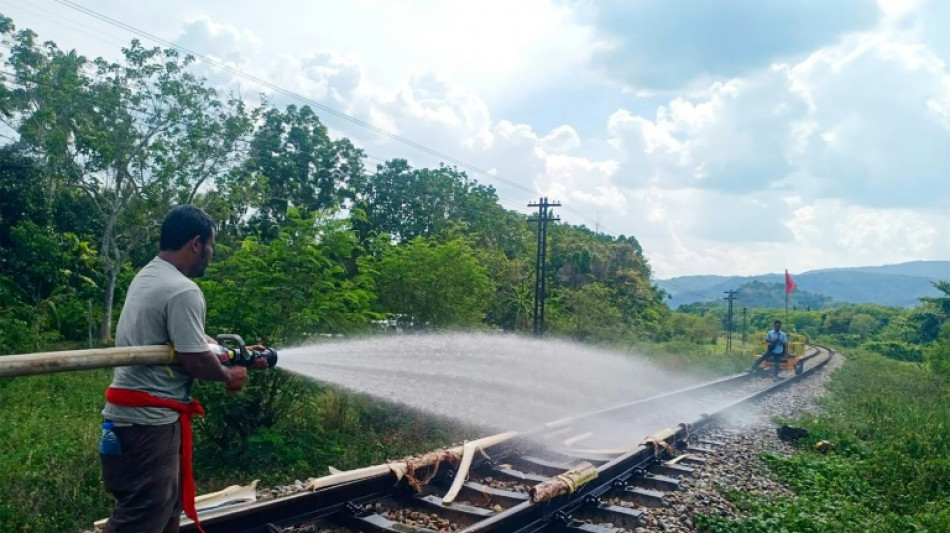
Heat-struck Thai village hoists cartoon cat in desperate bid for rain

As millions across Southeast Asia suffer a blistering heatwave that is melting railway tracks, a Thai village resorted to an unusual method to seek rain: parading a Japanese cartoon cat.
Thailand has sweltered in recent weeks as the temperature climbs across the region, with experts saying climate change is making heatwaves more frequent, longer and more intense.
In the kingdom's central Nakhon Sawan province -- which has been without rain for months -- villagers in Phayuha Khiri District hoisted Japanese manga cat Doraemon to break the drought.
Sparkly dressed paraders bore a tinsel-decked cage containing the stuffed toy through the village while onlookers sprinkled it with water.
Theirs was a new take on an old dry season ritual known as "Hae Nang Meaw", literally, the parading of a female cat.
The well-known feline aversion to water means some link the animals to rainfall, with their furious meows after being drenched thought to summon precipitation.
Most villagers no longer use real cats, lifting Doraemon or HelloKitty dolls instead.
As Doraemon was paraded in Thailand's heartland on Tuesday, in the south, the searing heat buckled railway tracks in Nakhon Si Thammarat province.
Railway workers doused the rails with water to try to bend them back into shape after the mercury hit 41 degrees Celsius (105 Fahrenheit).
The State Railway of Thailand said the "extreme heat" was to blame for the tracks warping between Ron Phibun and Khao Chum Thong on April 30.
"Officials brought water and ice to cool down the rails," the statement said, with the tracks usable again after an hour-long dousing.
Deputy state railway governor Jaray Rungthani said engineers would be keeping a close eye in the coming days as temperatures remained high.
"All railway station managers will help passengers, and be ready to handle the heatwave situation based on the forecast," he said.
The heat gripping much of the region -- from Bangladesh to the Philippines -- has strained energy grids and forced millions of children to stay home as schools close.
While the El Nino phenomenon is helping drive this year's exceptionally warm weather, Asia is also warming faster than the global average, according to the UN's World Meteorological Organization.
P. Rasmussen--BTZ

 London
London

 Manchester
Manchester
 Glasgow
Glasgow
 Dublin
Dublin
 Belfast
Belfast
 Washington
Washington
 Denver
Denver
 Atlanta
Atlanta
 Dallas
Dallas
 Houston Texas
Houston Texas
 New Orleans
New Orleans
 El Paso
El Paso
 Phoenix
Phoenix
 Los Angeles
Los Angeles



